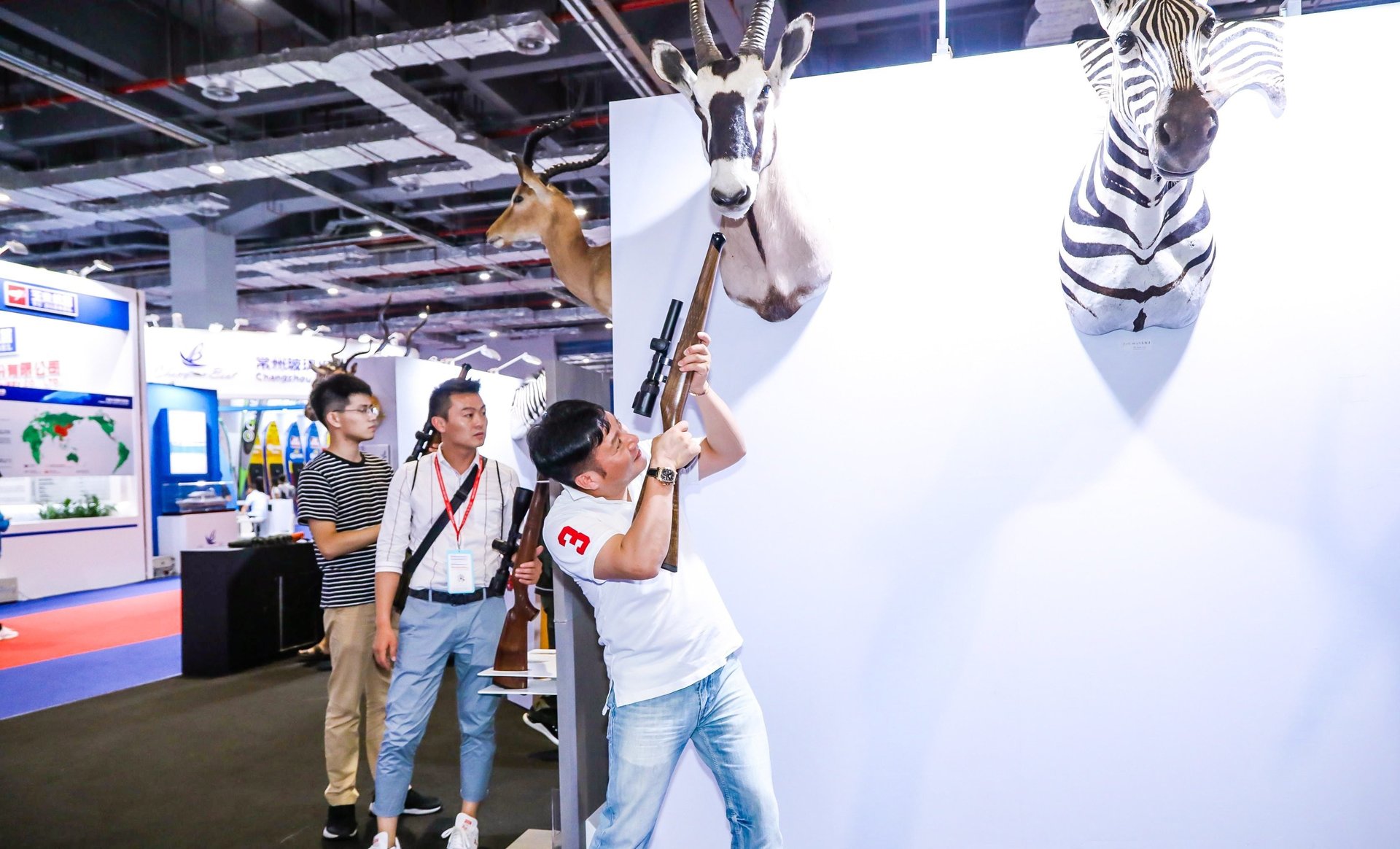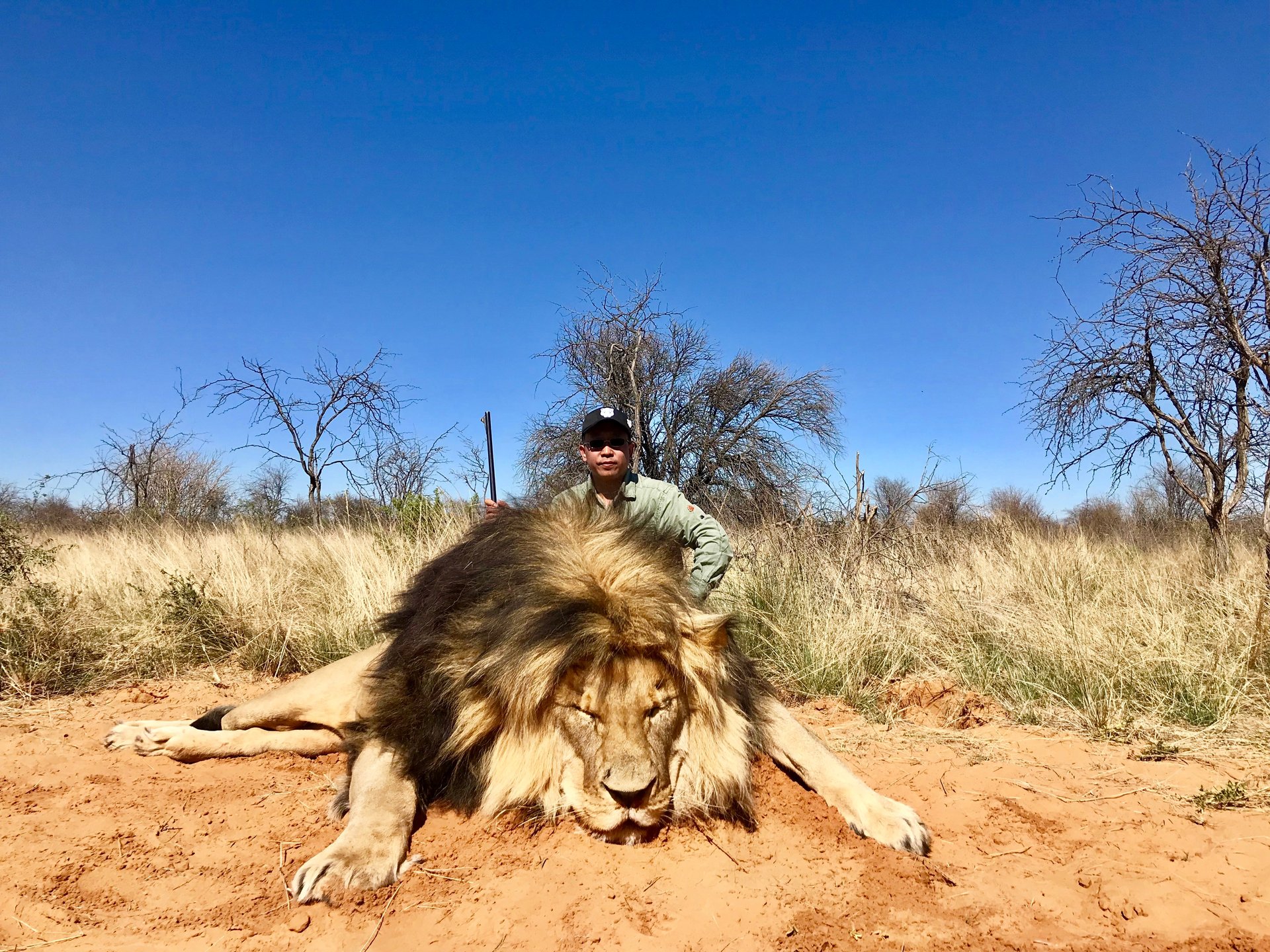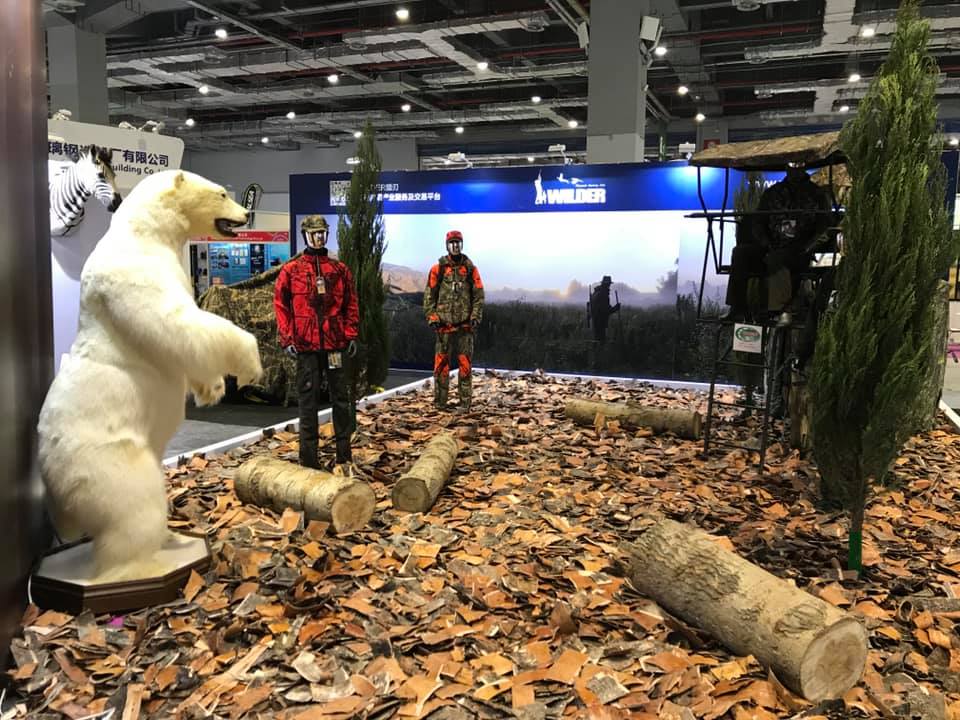Western hunting outfitters think China is the future of the market
Soon after immigrating to Canada in 2002, Chinese entrepreneur Jerry Li hunted for the first time, shooting a black bear in British Columbia. Just three years later, he and his twin brother founded ShooterKing, a high-end hunting clothing brand. And last month, he organized China’s first ever hunting show.


Soon after immigrating to Canada in 2002, Chinese entrepreneur Jerry Li hunted for the first time, shooting a black bear in British Columbia. Just three years later, he and his twin brother founded ShooterKing, a high-end hunting clothing brand. And last month, he organized China’s first ever hunting show.
Li is betting that as Chinese people grow wealthier, they’ll look for new activities reflective of their newfound social status. He decided to hold the inaugural China Hunting Show in late June, as part of the 24th China International Boat Show in Shanghai. “People, especially young people, they want to try different lifestyles,” Li said.

He currently operates a decade-old company called WILDER that distributes hunting-related content on Chinese social networks like Weibo (link in Chinese) and WeChat, such as articles on what it’s like to hunt lions in Africa, or quizzes to find out your “hunting level” based on the species you’ve killed. He plans to expand the offerings on his platform, which currently has over 40,000 subscribers, to allow customers to book hunting tours and buy related products.
Li is also looking at the domestic hunting industry, which has grown along with the rise of domestic tourism, despite China’s restrictive gun laws and a 2006 ban on foreign hunters. One park in Hubei Province, which allows visitors to hunt wild pigs, even listed (paywall) on a Chinese stock exchange in 2017. By the end of next year, Li plans on opening a pheasant hunting park and clay shooting range.
China beckons as Western hunters die out
The global hunting industry, too, is looking to the potential of the Chinese market as its biggest client base—American hunters—dwindles. The sport is losing its popularity among younger Americans as cultural attitudes about hunting change, and the country continues to urbanize. In 2011, there were 13.7 million hunters in the US, according to the U.S. Fish & Wildlife Service (pdf). Five years later, that number decreased to 11.5 million, with most of them over the age of 45.
There’s no official data on the number of Chinese who hunt, which is likely to be a fraction compared to the American market, especially with tight regulations on gun ownership and few places to hunt domestically. Li estimates, for example, that there are only 20,000 clay target shooters in China, while there are about 18 million in the US.
But the hunting industry in China is certainly growing, especially as Chinese spend more on international travel than ever before. The first company to cater to Chinese people who wanted to go hunting abroad opened in 2003, and now, Li estimates that there are about 20. Existing offerings for Chinese tourists include shooting polar bears in Canada and rhinos in Namibia, and those going on fishing trips in Russia can even request prostitutes to accompany them, Chinese news outlet Sixth Tone reported.
Alexander Oelofse, who was born and raised in Namibia, runs a hunting safari company his father founded in 1975. He feels the pressure of the shrinking Western market, prompting him to travel to China for the very first time to set up a booth at the China Hunting Show. For a beginner hunter, his company’s trips start at around US$7,000 for a 10-day package.
“When this chance came up with the China Hunting Show, we felt this might be… something that re-energizes the hunting market,” he said. “I think the future for China and Africa is really big, and the faster we from this side adopt the Chinese market, it’ll be better for us and for our kids in the future.”
Li managed to enlist foreign exhibitors like Oelofse to exhibit at the Shanghai show thanks to the help of Steve Scott, an American hunter who hosts and produces online hunting shows. His Instagram account—where he poses next to his successful kills, like crocodiles that appear twice his size—has about 24,000 followers. His role was to market the show to his deep network of hunting contacts, almost none of whom had been to China.
Speaking over Skype from his home in Norman, Oklahoma, Scott’s voice cracked with emotion as he recounted the first time he ever killed an elephant while on a hunting trip in Namibia.
“Here’s an animal that’s older than me, it’s sentient, it’s intelligent,” said Scott. Another time, he hunted a Cape buffalo with a bow and arrow. “There had only been a hundred white men who had done that.”
While exhibitors like Oelofse are interested in the financial rewards of China’s fledgling hunting industry, Scott—like most hunters—believes that a well-regulated commercial hunting industry can ensure the survival of species by giving communities a financial incentive to protect them, in addition to providing revenue for conservation programs. In Scott’s words, “a billion people” could give a much-needed boost for conservation efforts around the world.
The economic clout of the industry is undeniable, but there is still no general consensus among scientists, nongovernmental organizations, and governments on how much it actually benefits wildlife conservation in practice—and whether it’s ethical (paywall).
“This is the opening of the largest potential [hunting] market in the history of the universe,” he said. “This is the D-Day for hunting on the biggest beach there will ever be.”
Translators and gun babysitters
Though China Hunting Show attendees were intrigued by the booths and taxidermy displays— including a polar bear—very few of the 85 outfitters made any bookings at all during the four-day event. Oelofse himself signed on one client for a photo safari, but none for hunts.

Remi Donnelly, who exhibited at the show, is part of the fourth generation to work on his family’s cattle ranch in La Pampa, Argentina, which also opened a hunting lodge a few years ago. A week-long hunt on his ranch, where clients can shoot boar, buffalo and red stag, costs around $7,500.
“It is difficult to say [the show] was a success,” said Donnelly. “We made a lot of contacts, but we haven’t made any bookings yet.”
Even optimists like Oelofse are aware of the difficulties ahead in the Chinese market. Translators will be needed, while he and his guides would have to adapt to dealing with first-time hunters likely to have little experience handling guns. American or European hunting clients tend to be familiar with firearms and usually carry their own guns, but Chinese clients would require a guide to carry the firearm and only hand it over to the client once there was a clear shot, Oelofse explained.
“As time goes on and we get [Chinese] clients with more proficiency with weapons, they would go more American-style,” he predicted.
Scott said that he expected the lack of bookings, and that it could take years before many Chinese will be ready to shell out for costly and entirely new experiences.
“What I was selling was first access,” Scott said. “It’s the potential that’s there. That’s what brought people. That’s what’s going to bring people by the droves next year.”